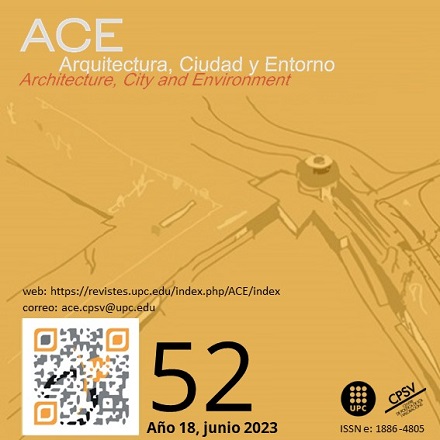La “shophouse” tailandesa: una tipología contemporánea, híbrida y urbana
DOI:
https://doi.org/10.5821/ace.18.52.11790Palabras clave:
criticismo vernáculo, arquitectura moderna de Tailandia, arquitectura postcolonial, tipologías arquitectónicas contemporáneasResumen
El término shophouse se refiere a las viviendas en hilera con bajo comercial que han constituido la tipología arquitectónica más característica de las ciudades del Sudeste Asiático. Estas edificaciones configuraron el marco espacial para la actividad mercantil de los puertos coloniales, constituyéndose en un elemento integral de la memoria colectiva y el patrimonio cultural de las naciones que nacieron tras el proceso de descolonización de posguerra. Habiendo perdido el favor del público a finales del siglo XX, la mayoría de las shophouses modernas de Tailandia sobreviven hoy cubiertas por marañas de enrejados y estructuras ilegales, planteando serios problemas de salubridad y seguridad. Sin embargo, la práctica arquitectónica contemporánea ofrece hoy relecturas actualizadas de este tipo edificatorio. Estas intervenciones se estudian a la luz de la noción postcolonial del ‘vernaculismo crítico’, atendiendo a su naturaleza híbrida y su origen transnacional, y reivindicando la vigencia de la shophouse en la Tailandia actual.
Publicado
Número
Sección
Licencia
COPYRIGHT
El contenido de los artículos y los comentarios en ellos expresados son responsabilidad exclusiva de sus autores, y no reflejan necesariamente la opinión del comité editor de la revista. Los trabajos publicados por ACE pueden reproducirse bajo la licencia CC-BY-NC-ND 3.0 ES más información http://creativecommons.org/licenses/by-nc-nd/3.0/es/
Lo que implica que las personas autoras sólo retienen y mantienen los derechos de Copyright dentro de las limitaciones incluidas en la licencia anterior.





































